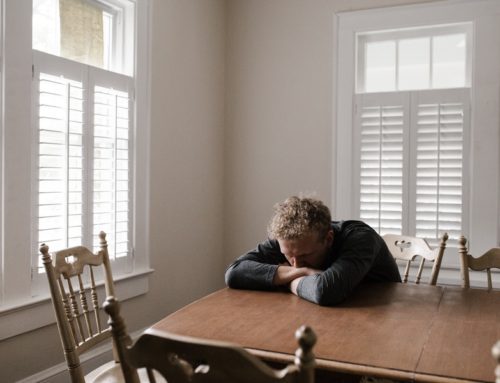Our inner critic tries to keep us in a kind of miserable homeostasis. Sometimes it seems as if dwelling inside relentless negativity is self-protective. After all, how can we get hurt in life when we don’t expect anything good? Wrapping ourselves in misery and isolation may feel safer than to risk fresh suffering. It’s a patently self-defeating approach, and this grim idea is assisted by our inner critic that’s always ready to rain on the parade.
The inner critic isn’t hallucinatory. The inner critic is an internalized set of negative messages that find a voice in our interior dialogue[1]. Some of those messages may have come from parents or caregivers during childhood, while others are our own anxieties. Toss in a heaping of fears—of things going wrong, of being embarrassed, of feeling unworthy, and you get the inner critic.
The inner critic tells us we’re not good enough, not smart enough, or simply unable to do or be what we want. It tells us that our depression or our anxiety is a sign of weakness, something to be hidden away. Mental illness makes the critical inner voice much worse. Our fears of stigma and the judgment of others worsen depression and stokes anxiety. The critical inner voice is made up of both shame and fear and it can wreak havoc on all aspects of our lives. Persistent negative thoughts are common enough with depression and the inner critic just piles on by undercutting the positive emotions we do manage to have.
Silencing Our Inner Critic with Compassion and Contradiction
Still, the inner critical voice is part of us. The inner critic lives in a place inside us that’s filled with anxiety and fear, sometimes terror. By validating and acknowledging the fear and anxiety that drives the inner critic, we take away its power to control us. When we extend compassion to the inner critic, we’re showing ourselves that same kindness.
We must also contradict and challenge what our inner critic says. Is the situation 100 percent like the critic says it is? Is what our critic says about us something we’d say to a friend? If not, we need to reframe those comments. Contradicting the negative message of the inner critic takes some practice and will feel strange at first. If you have spent years absorbing the hits of your own worst critic, it’s going to be tough but not impossible. Advocating for yourself, to yourself is a great way to silence your inner critic.
A useful technique is to write down a few of the messages your inner critic tries to tell you, then write down your responses. If your critic says that you always fail, try responding with a realistic appraisal, such as “I fail sometimes, but I do have successes.” It’s important to be realistic.
Remember, the inner critic is a completely fear-based perspective. Confronting it with the truth helps us manage that fear and reduce the anxiety behind it.
Damaris Aragon, ARNP, BC provides a full spectrum of mental health care to people in Spokane, Washington and the surrounding areas. She focuses on providing compassionate personalized care that adheres to current evidence-based standards. Reach out to Damaris through her contact page or calling 509-342-6592.
[1] https://onlinelibrary.wiley.com/doi/abs/10.1080/14733140212331384978






